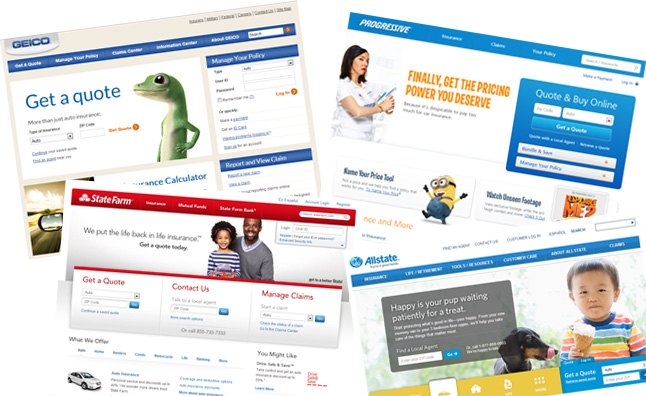Finding a Reputable Insurer
Your own insurability and getting quotes are only part of the shopping for auto insurance process. Finding a reputable insurer is the other, more important part. After all, you want an insurance company that has a history of good service. You want an insurance company with the ability to settle claims from its policyholders, a company with a strong financial outlook and relatively few complaints and most importantly, you want an insurer that’s legally entitled to do business in your state.
The first place you should look for this information is your local department of insurance. Each state government runs its own department of insurance that authoritatively supervises and regulates all insurance business in that state. Whichever one you live in, you’ll want to visit their website to access a cornucopia of free local insurance information and services for consumers.
While they may go be different names, your state’s insurance division helps consumers find reputable insurers by putting most of the important information at your fingertips. To find your state’s insurance authority, simply type “Division of Insurance” along with your “state” into a search engine. Click on the appropriate link (should be on top) and, voilà, you should be on their home page.
All complaints against insurance companies go through these departments. Besides being able to file your own complaints here, you can usually search the complaint index for the entire state to find out how many complaints were made, see the reasons complaints were filed, how they were handled, plus various other types of useful data.
The department of insurance can tell you whether or not a company you might be considering buying auto insurance from is licensed, how long it has been licensed for, how many complaints it’s received in recent years, its address and telephone number and, in some cases, a company’s rating.
Licensed insurers must meet state financial regulations as well as comply with state insurance laws and standards. If you buy from an unlicensed insurance provider, your department of insurance may have little or no regulatory authority to assist you if you have a problem. And, if an unlicensed company you bought from goes bankrupt, you’ll have zero protection under any of the state’s guarantee associations.
When it comes to rating the financial condition of an insurance company, you’ll need to look outside the department of insurance. The National Association of Insurance Commissioners (NAIC) is a great place to start. Besides providing a gateway to all state insurance divisions, NAIC offers a free tool called the Consumer Information Source that lets you look up complaints and licensing as well as financial information for specific companies by state as long as they’re in the NAIC database. If you find the insurer you’re running checks on is not in the database, it’s probably a fraud.
In addition, there are several online private rating services that can help you decide which insurer is best suited for you based on financial analyses and other criteria. Private ratings carry no guarantees and each service is only giving you an opinion. However, these opinions can be as valuable as hard data since they do provide a degree of information, or insight, on financial positions of various insurers from a private analyst’s perspective.
Ratings can be obtained by phone, mail or Internet, but in order to make sense of these ratings for any given insurance company, a good practice is to always get an explanation of the rating criteria so you know how it applies. Another good habit is to get ratings from prior years so it can be compared to the most current information.
Here’s a list of some free rating services that provide rating information for insurance companies:
The A.M. Best Company provides unlimited access to browse its own Best’s Rating Center after signing up for a free online account. You can get detailed insurance scores and company information, including license and financial info for insurers and re-insurers worldwide. Many local libraries subscribe to Best’s Insurance Reports.
Fitch Ratings ( www.fitchratings.com) has an alphabetical listing of over 2,700 insurance companies that it can provide ratings for on its website. The e-mail of the analyst(s) is provided on each rating along with the companiy’s NAIC identification number.
Moody’s Investor Service ( www.moodys.com) gives unlimited ratings of insurance companies and other financial institutions via to registered users its online service. A free account is required.
Standard & Poors ( www.standardandpoors.com) has its “RatingsDirect” service, which taps into credit (financial) ratings and research on companies in nearly 100 countries. The site is a bit hard to use, but you can sign up for a free account to view insurers credit ratings and company profiles.
You may also visit any of these sites to get a phone number with which you can call to speak to a person and get free ratings over the phone.
Whatever insurance company you decide to go with, just remember that it’s a choice you’ll have to make on your own. Hopefully it will be one you can live with.
More by Shaun Keenan

































Comments
Join the conversation